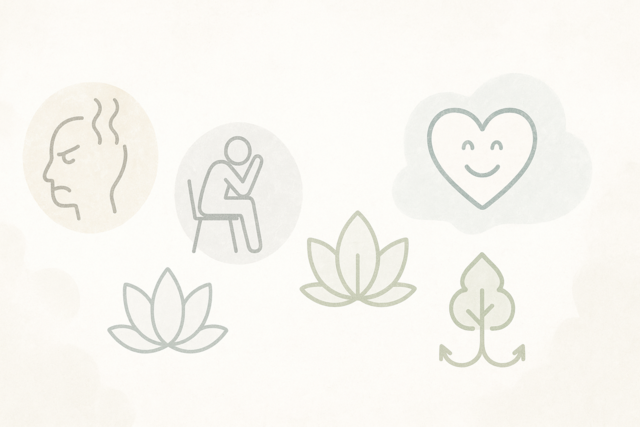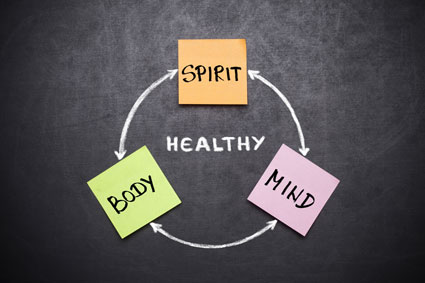Introduction
Assessing and Improving Your Current Level of Self-worth
It often is difficult for us to have accurate insight into our own personalities, self-worth, or even excessive egotism. Often we can get great feedback about these traits, or lack thereof, from good friends and family. If you have these, ask their opinions of your strong and weak traits and whether you need to improve or tone down your self-worth. If you think your self-esteem is low because of your family, or your family is a very poor judge of good emotional health, then you should avoid asking family members for their opinion. Using self-tests or the assistance of a good therapist may serve your needs better.
Take the self-esteem test below to find out your level. If your score is above 55 percent and below 90 percent, you should take steps to improve your self-esteem by addressing the problems leading to your low self-worth. . You also can engage daily in activities that improve confidence. Most importantly, do not be upset if it your score is below 90 percent; the majority of people score in this range.
To take a comprehensive self-esteem test compiled by Psychology Today, peruse the following link:
http://psychologytoday.tests.psychtests.com/take_test.php?idRegTest=1609
Psychology Today also offers several excellent self-tests that will help you better evaluate yourself in other areas:
http://www.psychologytoday.com/tests
The Differences Between Low Self-esteem, Healthy Self-esteem, and False Ego
People with healthy self-esteem do the following:
- like who they are;
- are not afraid to express their opinions or thoughts;
- understand they have to work hard at something to achieve excellence at it;
- respect and appreciate the rights and opinions of others;
- do not need to put others down to feel good about themselves;
- are able to accept their flaws and those of others;
- are able to learn from and accept help from others;
- desire growth, change, and self-improvement;
- set limits on the way other people are allowed to treat them;
- are able to admit to making a mistake;
- have good boundaries and insist on maintaining them;
- know their limitations;
- appreciate their strengths and weaknesses;
- do not allow others to make negative decisions for them.
People with low self-esteem demonstrate these patterns:
- do not like themselves;
- are highly threatened by others;
- are afraid to express their opinions;
- need to find fault in others to find worth in themselves;
- engage in self-destructive behavior;
- surround themselves with self-destructive people;
- allow others to continually treat them badly;
- exaggerate their faults;
- do not feel worthy of success;
- feel worthless or inept;
- have difficulty accepting and believing compliments;
- think everything is their fault.
People with false ego or grandiosity:
- think they are better than most people;
- have an elitist attitude;
- have a sense of entitlement and think they do not have to work hard for success;
- disparage others' earned success, unless they can take credit for it;
- cover up their mistakes or blame others for them;
- think their opinion is the only correct or feasible one;
- often express opinions that are not well-researched or based on factual information;
- have a double-standard for how they live and how others live;
- have difficulty accepting responsibility or blame for mistakes;
- ingratiate themselves to those who will advance their social standing;
- do not find value in people unless they have wealth or high social standing.
Daily Practices that Increase Self-respect and Healthy Self-worth
� Find something to like about yourself.
� Find something to like about someone else and let that person know about it.
� Exercise for at least 20 minutes.
� Learn something new.
� Spend time or talk with someone you like who enjoys your company.
� Take time to groom yourself before leaving the house.
� Keep your home or apartment clean.
� Give sincere compliments and accept them gracefully.
� Do your best at whatever work you do; if you are a student, do your best in school.
� Smile at yourself in the mirror and at others.
� Help someone who is in need or donate to charity; small gestures count.
� Get a good night's sleep as often as possible.
� Appreciate the best efforts of others.
� Congratulate yourself for any job well done.
Conclusion
Healthy self-esteem and confidence are vital to being assertive. If you have significantly low self-regard, you should make improving your self-image your immediate business. Make use of the books listed below as well as healthy friends and family to help you. If necessary, seek professional assistance from a good counselor and specifically tell him or her that your goal is improving your self-esteem. If you fall into a mid-range, as most people do, you should spend some time trying to improve how you feel about yourself as a person. If you are an ego-driven person, your needs are similar to those with low self-esteem. It is just as difficult to obtain balance and earned self-worth if you suffer from grandiosity as if you place no value on yourself at all.
Introduction
Each person has to decide how comfortable he or she is in expressing assertiveness. This level depends largely on the individual's personality type. Different personalities have different methods of self-expression that works for them. This section will introduce you to the most common personality types. Find yourself in these descriptions and use them to find your own strengths and weaknesses. Once you understand your unique traits better, learn to accept, be comfortable with, and use your personal best to assert your wants and needs to others.
Going with Your Strengths
When you have your list together, you also should use it to better appreciate what you are good at, what you should be doing for a living, what kind of relationships will work best for you, and what kind of life will suit your best attributes. You also will better understand what you have to offer in all of your relationships, in other words, what you bring to the table. By knowing your strengths, you know what you have to use to negotiate what you want and need from people who have different strengths. Realizing your strengths and improving on them will raise your self-esteem and thus your confidence and ability to assert yourself. You have something to offer the world, and it is important to focus on developing your strengths and improving your weaknesses to achieve the highest level of self-confidence.
For instance, here is a sample list:
I am resourceful.
I can find creative ways to negotiate what I want and need. I can help people find different ways to use the things they already have or find things they need. I can improve my strength in this area by practicing being more resourceful in my own life.
Getting the idea? Your turn.
|
STRENGTHS |
HOW THIS HELPS OTHERS; I CAN DEVELOP IT FURTHER BY: |
Accepting Your Weaknesses
Some of your weaknesses can be improved upon. If you feel you can improve them then you should do so, but do not waste too much time trying to be good at something you just are not suited to do or even interested in doing when you could better use your time focusing on what you are good at: your strengths.
Do not include things that you can do but do not necessarily like to do. For instance, you may hate doing laundry, but you are competent enough to do it well, and it is a necessary task if you want clean clothes. Likewise, in our relationships and jobs, there may be things we do not want to do or do not like to do but must do to get the job we mostly love done.
Some weaknesses would include: I am bad at math, English, spelling, cooking, communicating, negotiating; I am not creative; I cannot draw or paint; I am not good at science, etc. On the following page, list your weaknesses, then add people you know who may be able to help you in those areas if needed, in exchange for your helping them with your strengths. If you can, want, and need to improve a particular weakness, write down some options in accomplishing that goal. Understanding and accepting your weaknesses also is an integral part of raising self-esteem. Admitting a weakness may seem like a contradiction to self-worth, but it is not. Healthy, self-assured people know and accept themselves completely, and that includes accepting their faults as well as loving their strengths.
Example:
Math is my weakness. I cannot and do not want to improve those skills because it would require too much of my time and effort to do it right. My co-worker Susan is good at math. I could exchange my strength at editing for her help with mathematical tasks. My husband is good at math. I could exchange my strength at cooking for his balancing the checkbook.
Alternatively:
Math is my weakness. I can and would like to be better at it. For now, I could get help from XYZ. I can improve my math skills by taking a business math class or reading a business math book.
|
WEAKNESSES |
I SHOULD SEEK ASSISTANCE FROM; I CAN IMPROVE THIS BY: |
Being Comfortable with Your Personal Best Level of Assertiveness
Eventually, there will be times that you will have to challenge your comfort zone. Change and acquiring new skills may seem uncomfortable because they are different and new. You should view this as the positive change it is because the hard work and minor discomfort you feel will be worth the rewards. If you have the personality type and your own strengths are such that you find assertiveness is not at all uncomfortable, then go for it. If not, do the best you can, take small steps toward letting others know what you like, do not like, want, and need. Challenge your comfort zone and reap the rewards of positive change.































